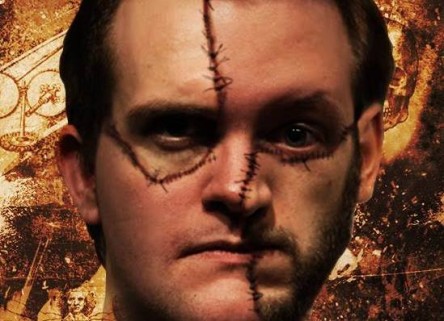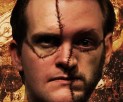Frankenstein’s monster wants a hug

Let’s clear one thing up straight away: Frankenstein is the doctor, not the monster. Or is he? ‘I think when people leave our production, they’ll just say to me, ‘You’re the monster, man! YOU’RE the monster!’ says Jamie Brown, a European and International law student who is playing the ruthless Dr. Victor Frankenstein in A-live!’s production of ‘Frankenstein.’
A-live! explores the dark side
Brand new production house A-live! is the brainchild of Dawn and American studies student Chad Bullock. They love suspense, mystery and the supernatural, and want to provide a platform for English theatre that brings you just that: high-brow horror. A-live! is to become a regular platform for darker plays in the Groningen area and in the English language.
Dawn Bullock is directing the play, based on Mary Shelley’s gothic novel about a scientist creating life out of dead bodies. She has always been obsessed with it, but never felt any adaption captured what she saw in the story.
Then, she saw Danny Boyle’s stage production in London. For the first time, she thought someone got it right. So, she decided to take it on herself. ‘This production focuses on giving the creature a voice, and really explores the idea of meddling with nature and the question of who is the real monster.’
She is very right to take this approach, says Kees de Vries, lecturer in the English department of the RUG. When he teaches the novel, he wants his students to ask those questions, too. ‘Frankenstein is about the transgression of science. The novel is a strong reaction to the Industrial Revolution, even though in 1818 a lot of the stuff the book is talking was really science fiction.’
Being human
However, since then, the world has changed radically. ‘Nowadays, we have perfected the art of transplantation and we do things like cosmetic surgery. We are getting better at reviving people who have died – at least for a short amount of time – so we’ve come much closer to what Frankenstein did’, De Vries says. ‘The story raises legitimate concerns about the scientific questions of our day, like cloning and stem cell research – the sorts of genetic things that change how we view being human.’
And the creature? Is that even human? ‘Dr. Frankenstein clearly doesn’t think so, but the creature tries to emulate humanity quite a bit’, De Vries says. ‘Whenever he is described by others, he is portrayed as more monstrous, But when he describes himself, it’s in human ways.’
Self perception
That self-perception is what Chad Bullock, an American Studies student, brings to his portrayal of the creature. ‘Actually, in the play, the term ‘monster’ is most often used toward Victor. There’s more monstrosity in human actions than in the animalistic behavior of the creature.’
‘Victor is worse in some ways because he chooses to act horribly’, Brown, his fellow actor, agrees. ‘But the creature is really a newborn baby in an adult body.’
The actors are going for a unique theatrical experience next Thursday and Friday: ‘By the end of the play, we hope somebody punches Jamie in the face, saying, ‘If you hadn’t done it, none of this would have happened!’’ Chad says. ‘As for me, I hope to get hugs.’
‘Frankenstein’ will be performed at Het Prinsentheater on 5 and 6 June at 20:30. Tickets are €8.50 for general admission and €6.50 for students.


